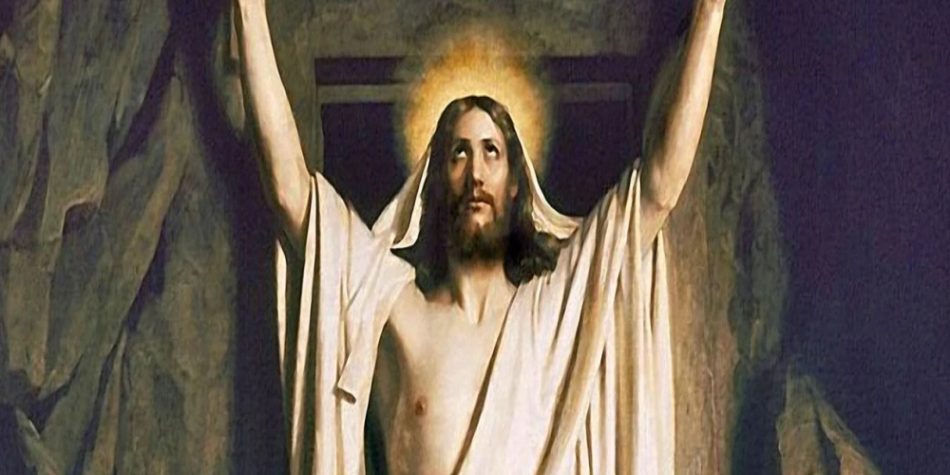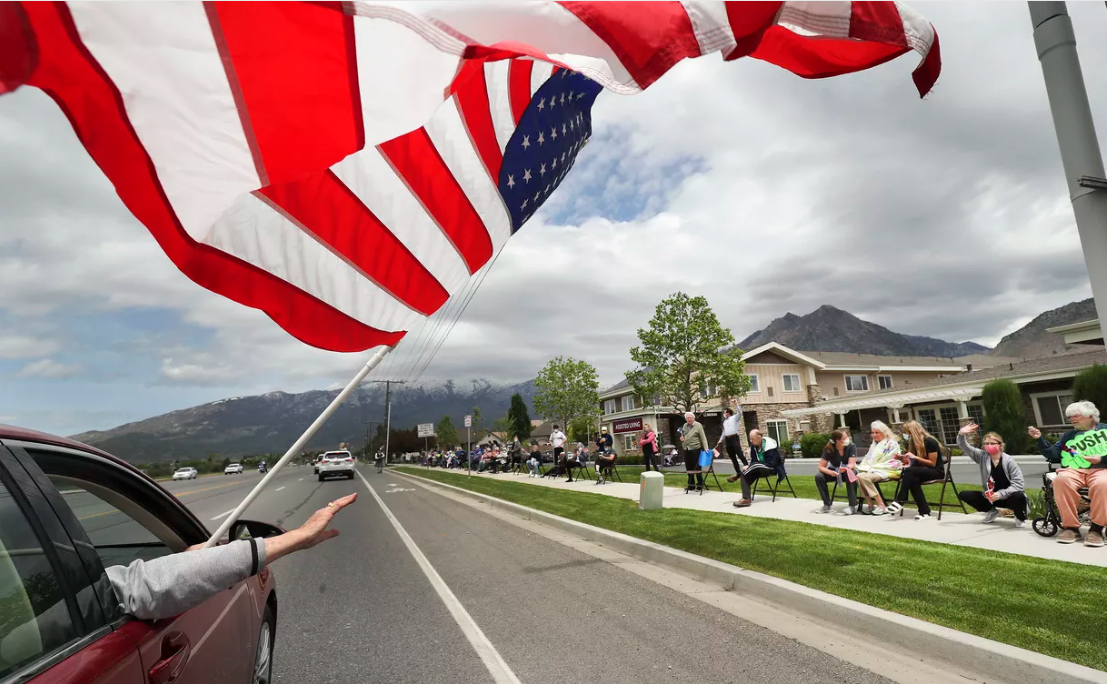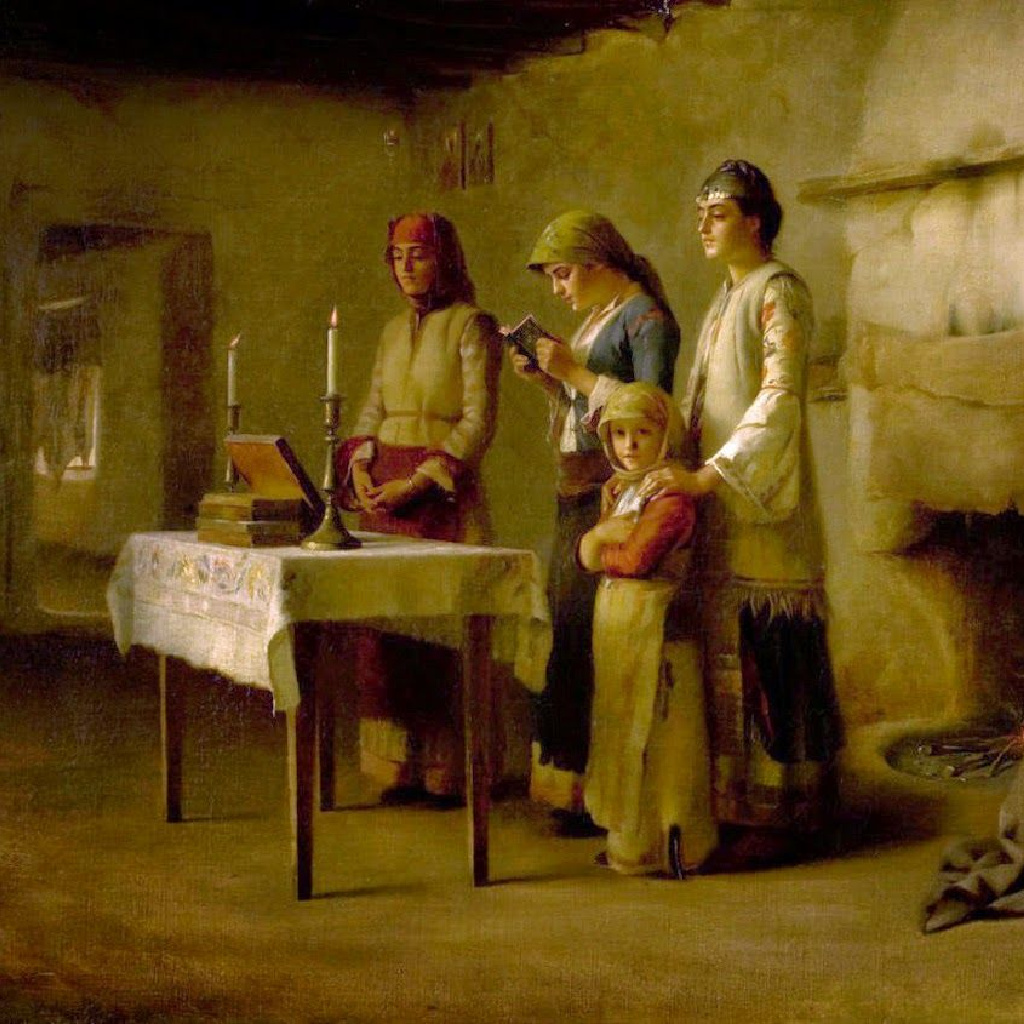As we celebrate Easter, we rejoice at the news that Christ’s spirit and body were reunited, never again to be separated, along with the promise that, after death, our spirits and bodies will also become eternally unified.
As we contemplate a future time when the spirits and bodies of the dead reunite, we can benefit from realizing the power of Christ’s atoning sacrifice that can unite us as God’s people right now. The glory of the atonement is not reserved for the afterlife. As we learn in Christ’s prayer for us before He entered Gethsemane, His hope for His followers is that we may become one, not only with the Divine, but also with our mortal brothers and sisters here on earth even as He was at one with God the Father before His crucifixion, death, and resurrection.
The Importance of Unity to Jesus—Personally
Prior to His resurrection, Christ demonstrated the importance of unity among the faithful by expressing His intense personal need for the support and comfort of His friends. As He anticipated what would happen on the last night before His death, Jesus said, “Now is my soul troubled.” His anxiety continued unabated as the night wore on. After entering the Garden of Gethsemane, He told Peter, James, and John, “My soul is exceeding sorrowful, even unto death.” As He agonized over what was about to happen, He asked them to keep watch because His burden would be lighter if His closest companions were awake nearby. Nevertheless, they were unable to help.
Though they left Him desperately alone, Christ made it possible for us to support each other in our own trials through the pain He bore.
The Excruciating Suffering of Christ
It is a holy Easter tradition to ponder Jesus’ agony and the offering He made. What we may not always appreciate is how reflecting on these events can help us to better understand unity with God and one another. After all, this is what Jesus desired when He faced the horrifying events leading to His death—events so dreadful that even the great Jehovah prayed for an alternative. The glory of the atonement is not reserved for the afterlife.
As He prayed, the full weight of all our wickedness and abominations bore down upon Him. In Gethsemane, the place of the oil press, where olives were crushed under a heavy stone, Christ also took on Him the crushing weight of all our “pain of body, hunger, thirst, and fatigue.” He bore our sicknesses, “afflictions and temptations of every kind.” He took upon Himself not only our iniquities and agonies but also our weaknesses and infirmities. Christ bore the emotional and physical pain that comes from every way we fall short of the glory of God. The suffering was so intense that it caused Christ our Lord, “the greatest of all, to tremble because of pain and to bleed at every pore.”
This was a kind of suffering mere mortals cannot fully imagine. Nevertheless, as with every symbolic sacrifice that preceded Him, this great and last sacrifice was not complete until His life ended. Perhaps to provide us with a better understanding of what Christ endured on our behalf, Christ’s agony was made public in a way that can evoke in us a visceral and almost tangible experience.
The Apostle John records that the Roman soldiers “scourged him.” Flavius Josephus tells of “flagellations carried out in Palestine where the strokes were delivered with such strength that they exposed the victim’s innards.”
Roman soldiers further humiliated Jesus by stripping Him of His clothes and placing a robe of an ironically royal color on His shoulders. Then they took the reed they had given Him in mockery as if it were a royal scepter, and they hit Him over the head with it where they had set a crown of thorns that was already tearing into His scalp.
Crucifixion itself was notoriously horrific. The word “excruciating” comes from a Latin word and refers to torture as if by crucifixion. The entire ordeal was public, humiliating, and usually lasted between 24 to 36 hours.
Of course, it was not the physical torture and death of a man on the cross alone that effectuated the atonement. Many have been tortured, and some even crucified. Several millennia of animal sacrifices were not enough. All of this, combined with the cosmic suffering in Gethsemane, while necessary, was not sufficient to complete the atonement. In order to satisfy the demands that justice required to redeem all of our souls, something more was required. It could not be “a sacrifice of man, neither of beast, neither of any manner of fowl; for it [could] not be a human sacrifice; but it must be an infinite and eternal sacrifice.” Only Christ, the sinless Son of God, could serve as the infinite and eternal great and last sacrifice. It is no wonder, then, that Christ approached that night with great fear and trembling, but also with a committed sense of duty, hoping that there might be some other way but ultimately realizing that the bitter cup was His alone to drink.
The Unifying Power of the Atonement
Jesus knew what He was to do before He did it, and He knew why He was doing it. In asking that the cup might pass from Him, Christ knew what horrors He was about to endure. Therefore it is significant to consider what Christ prayed for on behalf of God’s children before embarking on this ordeal. What did He hope to accomplish by virtue of His suffering? Christ demonstrated the importance of unity.
But Jesus also prayed for us. And it teaches us why He endured that suffering for us—what He hoped we would do with it. He asked that all those who believe in Christ through the words of His apostles may be one, in the same way that Christ and the Father are one, and that we all may become one with Them.
That’s it. That’s what He wanted for us. That’s why He did it.
Before Christ took upon Himself the full weight of all of our sins, weaknesses, and afflictions, before He was beaten, nailed to a cross, and killed, He prayed that we all might become unified with each other and with God.
We often talk of the way in which sin and death separate us from God and that through Christ’s suffering, death, and resurrection, we may become reconciled to God and enter again into His presence. However, this is only part of the great “at-one-ment,” a word that literally refers to becoming one with others. This word is used to describe the result of Christ’s sacrifice and resurrection because that is the majestic and powerful outcome of the ordeal.
The atonement enables us not only to become at one with God in the eternities. It was Christ’s prayer that we might also become at one with each other and with God here in mortality. This is not a condition that is intended for some future celestial realm. It is intended to happen in our lives now. The unity of the followers of Christ is intended to serve as evidence to the world that “God so loved the world, that he gave His only begotten Son.”
Through our weaknesses, we become estranged not only from God but from each other. Sickness can separate us from one another, as evidenced in a dramatic way by the recent pandemic. Weakness can separate us from each other when we lack empathy or patience or when we simply misunderstand one another. And sin divides us. Sin not only separates us from God, but it drives a sharp wedge between friends, families, and communities.
So, just as Christ’s suffering made it possible to once again become at one with God, even after our descent into sin and death, the effect of Christ’s suffering empowered His followers to become at one with each another. Paul expressed this ideal when he wrote: “There is neither Jew nor Greek, there is neither bond nor free, there is neither male nor female: for ye are all one in Christ Jesus.”
It may be that the most important thing that followers of Christ can strive for as a community is unity. A Zion community is one in which the people are “of one heart and one mind.” He who prayed that His people may become one immediately before He suffered and died for them later declared, “if ye are not one, ye are not mine.”
Learning and Building Unity
We have been given marriage, families, and the Church, in part, so that we might practice and learn unity in the face of the differences and conflicts that often exist in these arrangements. The saving ordinances of the Church themselves teach us how to become unified. In the temple, we are sealed as families and learn how to become closer to God and to each other through covenants of sacrifice, obedience, chastity, and consecration. J Jesus also prayed for us.
In striving to accept this God-empowered gift to be at one with each other, it is of paramount importance that we are willing to take upon ourselves the name of Christ and always remember Him and keep His commandments. We may thereby have the Spirit to be with us. The Spirit can then reveal to us how to act and can purify our thoughts and desires, enabling us to behave in the way that we know we should. The fruits of this spiritual transformation are “love, joy, peace, patience, kindness, goodness, faithfulness, gentleness, [and] self-control,” empowering us with the capacity to live in unity with our fellow Christians. The Holy Ghost is able to teach us, sanctify us, and change our hearts in this way because of the Atonement.
On that Easter morning two thousand years ago, a miracle occurred when Christ’s spirit became, again, at one with His body. This culminating event of the atonement brought about another miracle that can manifest itself in our lives today: the miracle that the followers of Christ can become one. Through the infinite and eternal sacrifice of our Savior, we can realize the blessings that Christ sought for us at the threshold of His atonement. As He took upon Himself our sins, weaknesses, and afflictions, He cleared barriers on a covenant path toward eternal happiness and unity in Christ. As the Church of Jesus Christ expands throughout the world with an increasing variety of languages and cultures, and as modern society becomes more fractured and divisive, cultivating unity among the followers of Christ will require a perpetual miracle. Let us therefore always remember the power of the atonement and the transformation that it can bring, enabling us to become one with God and with each other.

















